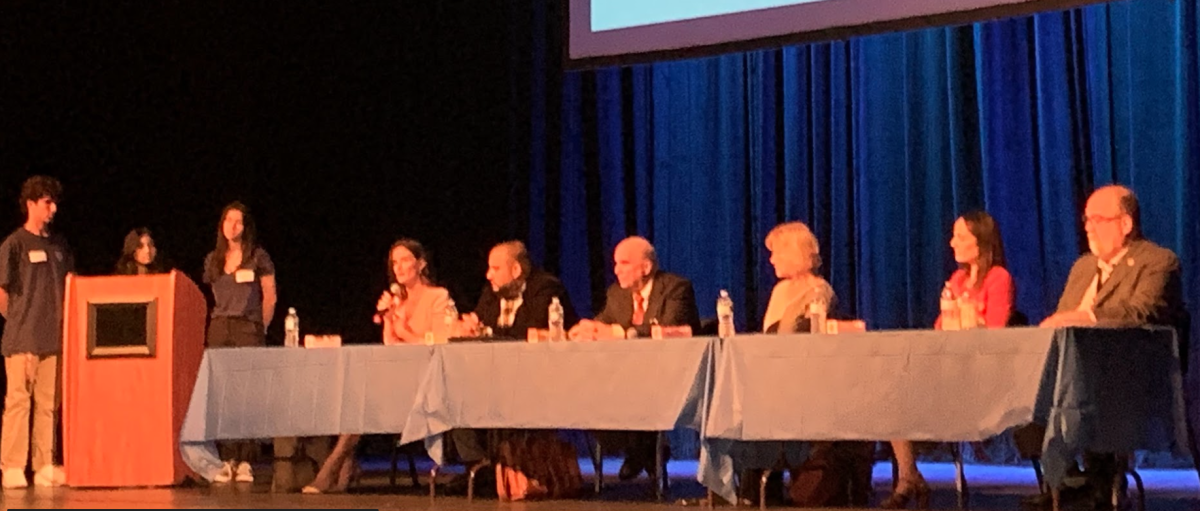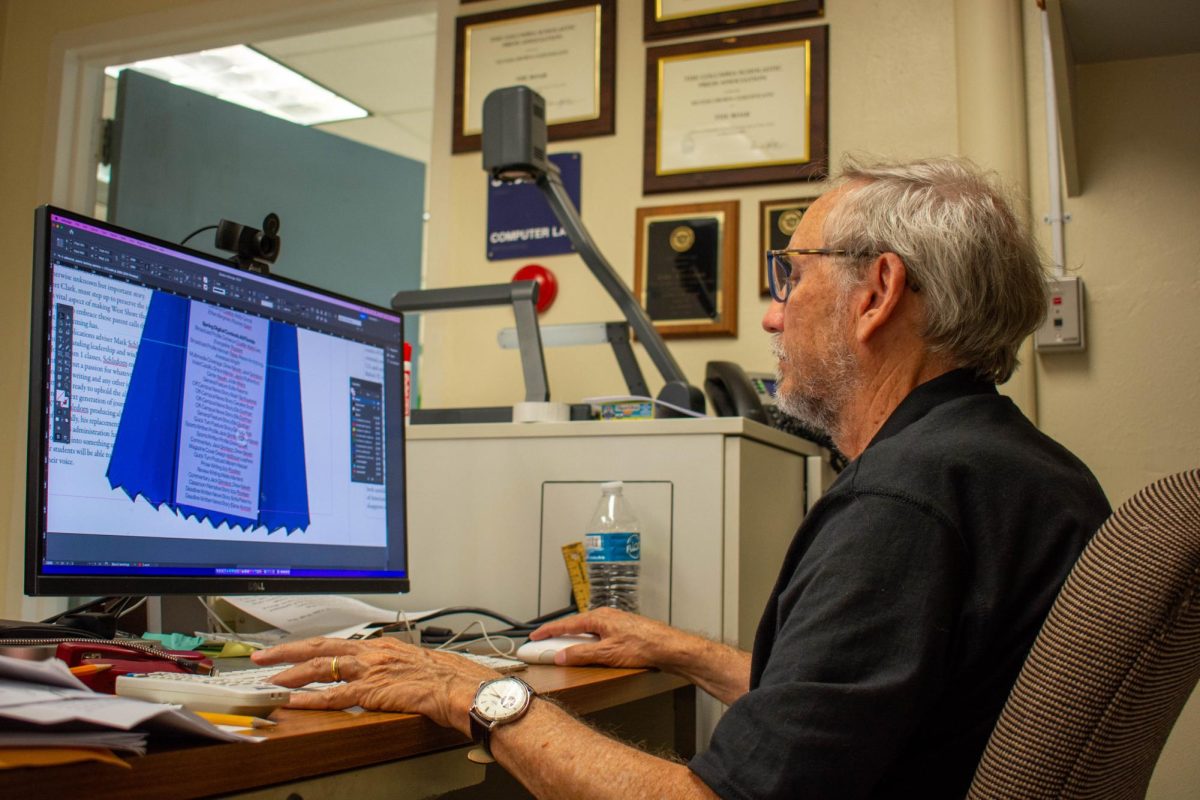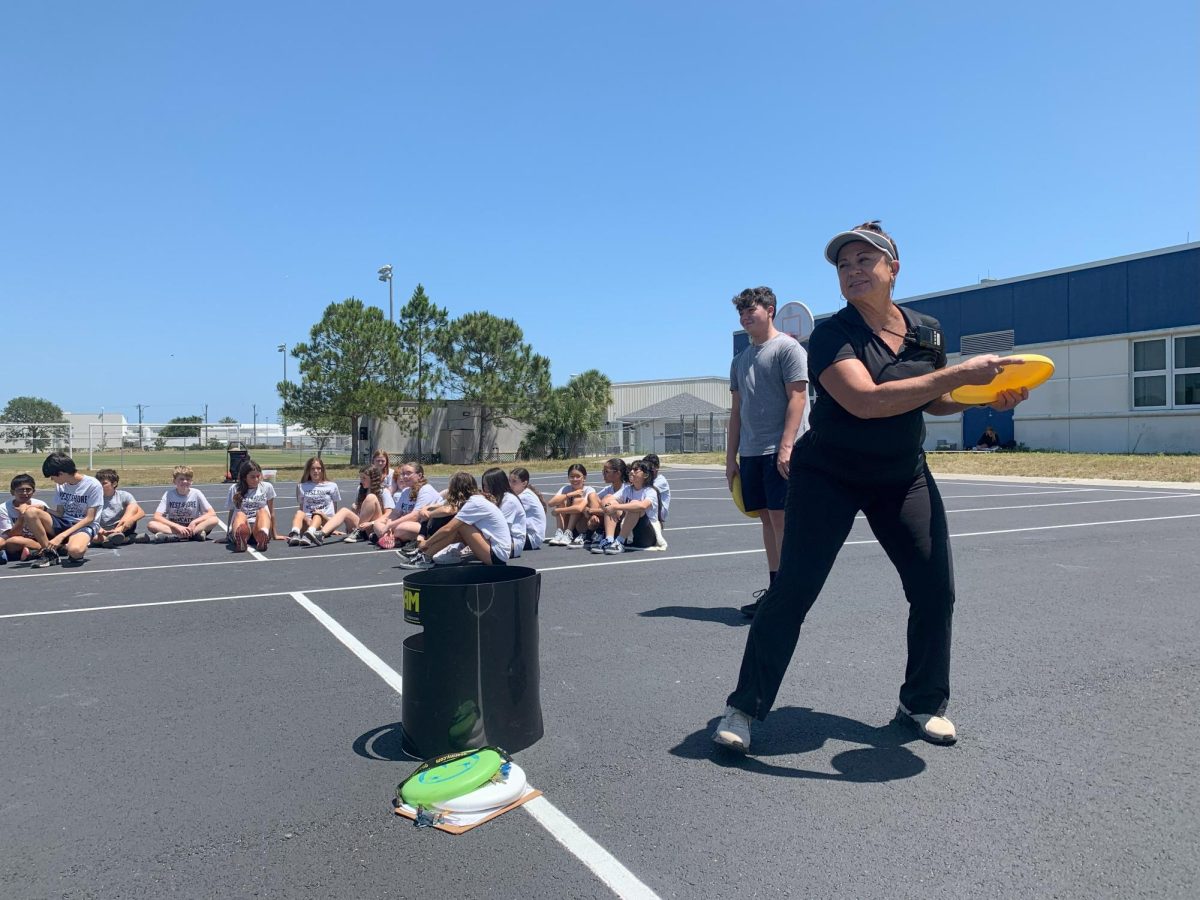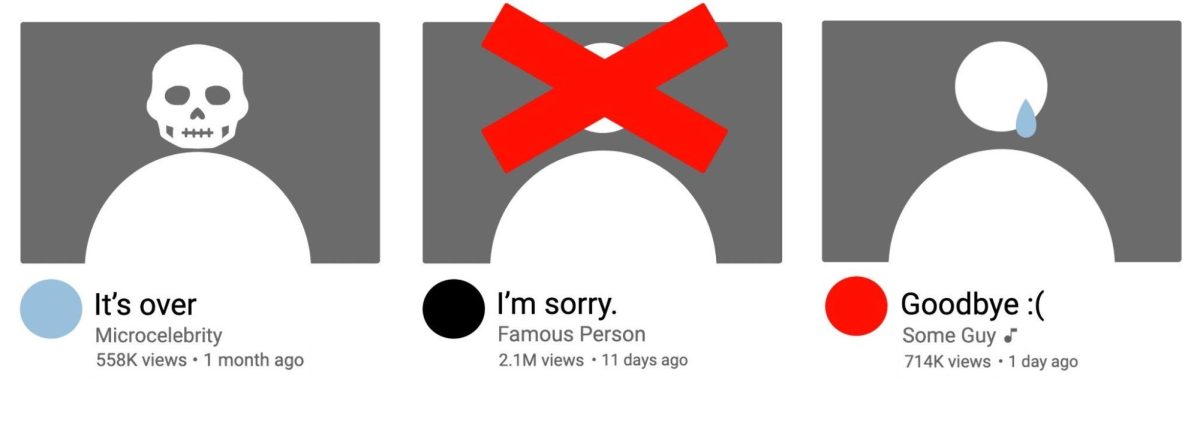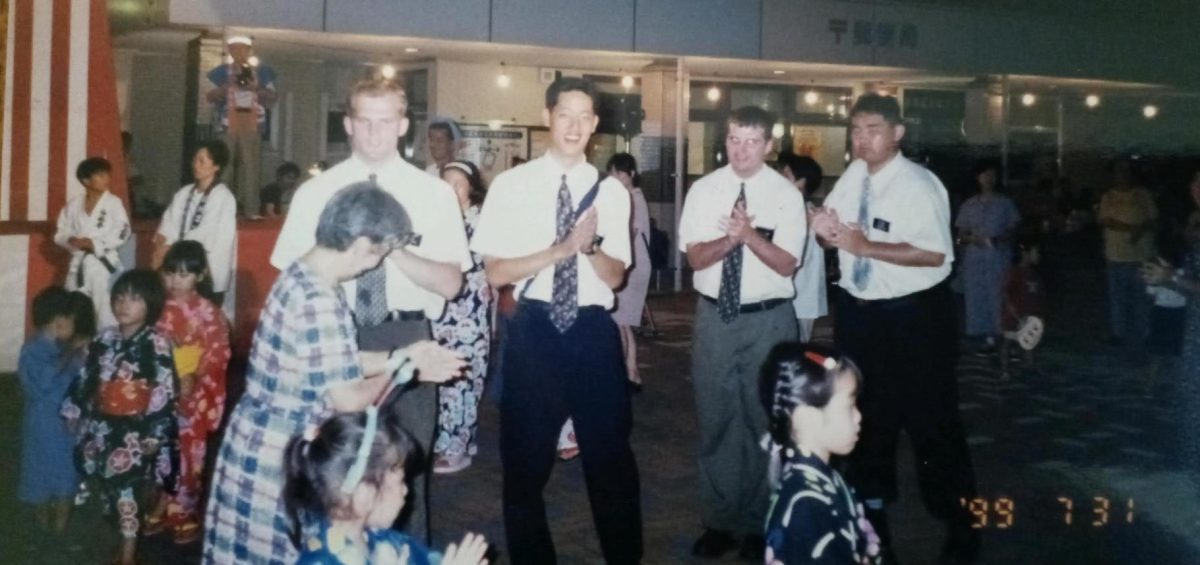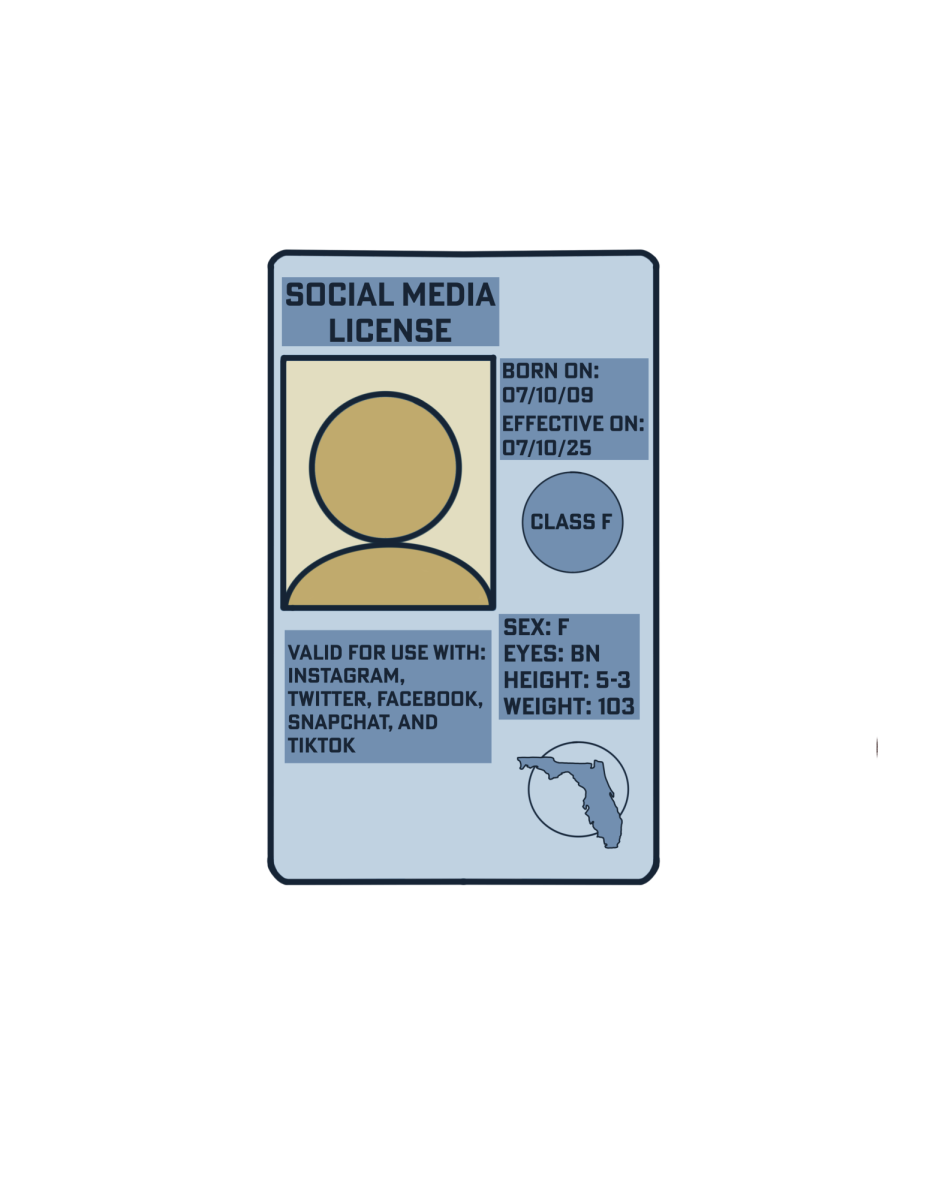Senior Anjani Sharma sat at the family dinner table in Hyderabad, India, and was shocked to hear her cousin Vishnu Nellutla discuss a suicide at his school Gandhi Medical College. After that conversation in 2019, her family would talk about the student in hushed whispers.
“At 13 I did not have the emotional maturity to understand the importance of mental health in these cases,” Sharma said. “I was sad because my family did not even want to talk about the root causes of suicide. When someone dies, people do autopsies but remain silent about the mental part.”
Realizing the impact of mental health issues in India, Sharma was determined to destigmatize them by founding the nonprofit organization Minds Without Borders in December 2022. Minds Without Borders has spread to more than 18 countries, 24 states and 2,500 volunteers.
“It’s kind of weird because it started first as advocacy more than an actual [nonprofit],” Sharma said. “I saw that there had to be a lot done with mental health reform in our state, in our country and worldwide. Some of my really good friends wanted to join, so I had the idea of having a more structured organization as an outlet and a coalition for advocating for mental health.”
Sharma held Minds Without Borders’ inaugural event on Nov. 2 at Eau Gallie High School. The gathering featured six panelists and vendors discussing mental health. The panelists were Freddy Morello Jr., executive director of National Alliance of Mental Illness Greater Orlando; David McMahan, vice president and dean of the Florida Institute of Technology; Jennifer Jenkins, Brevard County school board member; Jonelle Ensign, owner of Monarch Educational and Psychological Services; Lori Parsons, director of Lifetime Counseling Center and Thomas Mahle, chief executive officer of Palm Point Behavioral Health.
“[A lot of the panelists] are personal mentors of mine, like Jennifer Jenkins and Freddy Morello,” Sharma said. “It was just a lot of networking through different mental health conferences and just being out there in the community. The reason we had this event was solely to make sure that people know mental health is something you can talk about and not be ashamed of.”
Sharma first reached out to Jenkins via email in September.
“I was blown away,” Jenkins said. “She asked for advice on ways to move forward. I’m just really proud to see what they’ve accomplished so fast and to be here. These are the moments that make this job worth it because sometimes it’s not a very fun job.”
Kelly Haskins, the president and founder of Do It For Hunter, Inc., a nonprofit suicide awareness and prevention group, also attended the event. Her message was “you matter” after losing her son to suicide in 2021.
“Hunter had just graduated from Merritt Island High School, and he had just started at the University of Central Florida with a mechanical engineering major,” Haskins said. “Super-smart, super-talented and absolutely as normal as you can possibly get. He was about six weeks into school at UCF, and he woke up one morning to take an online math test. He failed, and he took his life with no warning whatsoever.”
Haskins said she hopes Do It For Hunter, Inc. and Minds Without Borders can help kids open up about their struggles.
“Hunter didn’t like to talk, and he kept everything inside,” Haskins said. “Maybe it was because he was afraid to talk about his problems. I want to save a life.”
Sharma said although she was satisfied with the outcome of the event, she had hoped more students and teachers would attend. There were around 50 attendees in total.
“I don’t think there’s ever been an event like this, especially run by students, and that’s what’s remarkable,” Sharma said. “All six of the panelists and vendors did a really good job. [The small audience] was disheartening, especially because we marketed it pretty well throughout the county. I don’t think there’s anyone to blame. People still feel ashamed to have an open conversation. [But] even if one person in the audience was impacted, then we did our job.”
Sharma’s hopes to persuade state leaders to fund mental health reform and to increase media coverage.
“The best way to create change is by policy,” Sharma said. “There needs to be more funding and it needs to be included in Medicaid and Medicare plans and more accessible. Giving funding to hospitals to train psychiatrists and psychologists and school districts to get school counselors is the most important thing.”
To that end, Sharma is working with legislators to propose a new bill in the Florida House of Representatives legislative session next year. Eventually, she wants to travel to Washington D.C. to lobby for the bill as well.
“[The bill would be] reforming the current mental health [curriculum] in 6-12 schools,” Sharma said. “Brevard is where we’re most heavily concentrated because we’re able to start here and get some students to do some advocacy. We are working with the school district to have better mental health resources and support overall. It’s just talking about it, having meetings and then actually having the bill picked up by a couple of senators and in the Senate House, written by us.”
Jenkins said she believes Florida is “putting a Band-Aid” on mental health through the required annual five-hour resiliency instruction for 6-12 grade students, which is why Minds Without Borders is important.
“There are no specific ways to address the crisis, [Florida is doing what] feels good,” Jenkins said. “We’re going to train people. We’re going to add funding to certain categories, but we’re not going to have actual data-driven decisions and scientifically proven methods. At the same time, we are constantly diminishing the professionalism of our educators, taking away their [power] in the classroom to get to know their students and to ask them personal questions that can help in this very area. We are teaching students that you might have something going on, but you need to toughen up and you’ll get through it.”
Minds Without Borders’ next event will be a 5k walk and run in February at Orlando’s Lake Eola Park in collaboration with other nonprofits.
“We are headlining the event,” Sharma said. “We want more people to join our cause and support us, whether it be businesses or students. I think that for students it’s just word of mouth, constant from Hawaii, Alabama, New York to even India. We have a really good team which contributes to our success.”
Jenkins said she envisions students like Sharma “marching up in Tallahassee and being the voice for our future.”
“I know that this will absolutely grow,” Jenkins said. “There will be unique opportunities as these students continue to network within their community, and those connections continue to network for them outside of this community.”
Sharma encourages her peers to be more vocal about mental health.
“There are so many ways people can get involved, whether it be joining Minds Without Borders or reaching out for help,” Sharma said. “Having awareness is the best thing that anyone can do, whether it be writing, speaking or having events to change the norm about mental health. This is going to continue as long as mental health is stigmatized and not dealt with properly.”
Haskins said mental health is crucial to talk about.
“I want [the Suicide and Crisis Lifeline number] 988 to be known as easily as 911,” Haskins said. “So kind of think of 911 as regular emergencies, and 988 as emotional emergencies. I would hate to have another family go through what we’ve gone through. Not just our immediate family, but also [Hunter’s] group of friends.”
Jenkins said empathy needs to be prioritized in schools.
“So often people think about school as being a place where we foster academic gains for students, but we often forget that we are given the responsibility to grow functioning citizens for society,” Jenkins said. “We need to worry about the pragmatics of our students and their social skills, mental health, their confidence and their interactions with one another.”

